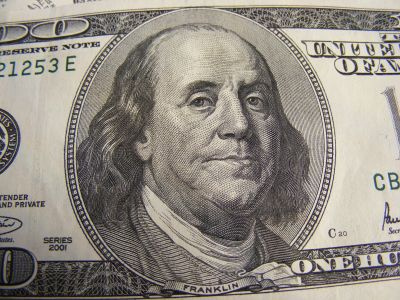We’ve heard a lot about campaign finance this election cycle. But what actually is it and why should we care?
Let’s get caught up on the history first. Campaign finance on the Federal level essentially began in the 1880s, but was largely ineffective until the Watergate scandal of the 1960s and 70s. The resulting legislation in the wake of that incident and other subsequent efforts created the Federal Elections Commission (FEC) and electoral finance system we’re familiar with today. While the FEC’s name may imply broad authority over all U.S. elections, their practical role is to ensure that Federal campaigns are legally financed.
Today, this is a critical responsibility, as money is a larger part of our electoral process than ever. In the presidential race, analysts expect candidates will need to raise in excess of $500 million in order to even have a shot at winning. Dollars are important for Congressmen, too: in 2004, the candidates who spent the most won over 90% of contests. More revealing, over two-thirds of all individual contributions were between $1,000 and the maximum of $2,300 that cycle, according to the watchdog organization Open Secrets. This is where money can begin to cause problems by unduly influencing elections. The recent advent of Super PACs and increasing popularity of bundlers – individuals who curry influence by gathering contributions from many people and donating it all at once to a campaign – only further underscores the problem. By looking at this, it’s easy to see how critical money is in an election and why those with a lot of it can influence candidates’ platforms and contests’ outcomes.
Take Goldman Sachs, for example. After 2008, Goldman employees steadily began to change their political allegiance. According to The Wall Street Journal, from 2008-2012, contributions to Democrats decreased by about 50% and increased commensurately to Republicans. Why the shift? A constricted line of communication with the new Obama administration, the Democrats’ portrayal of bankers as “fat cats,” and passage of the Dodd-Frank Reform Act could be a few reasons. In particular, Goldman Sachs and other financial firms took serious issue with the Volcker Rule in Dodd-Frank, which restricts U.S. banks from making certain kinds of speculative investments that don’t directly benefit their customers. No matter the cause, in just a short amount a time, a company that had generally been a Democratic stalwart over the past few decades suddenly shifted fidelity. We won’t know the outcome of this change of heart until after November’s election, but Governor Romney’s campaign has clearly benefited from the support.
From instances like this, a question about campaign finance arises: to what extent should an individual person or corporation have the ability to be a backer or detractor of a given side in an election? It’s fair to say that the ability to give or donate to a cause is an extension of one’s right to free speech. However, when those donations are so large that they determine a candidate’s policy or an administration’s direction, the lines between supporting and governing are quickly blurred. Should we mandate public financing of campaigns or spending limits? Would that hinder candidates’ ability to communicate with the nation? These are tough questions that we’ll need time to grapple with. Our varying systems of campaign finance at each level of government (Federal, state, municipal) also don’t make answering them any easier. Most observers, though, don’t criticize large contributors for donating to candidates’ coffers, they object to them bankrolling an entire campaign. Because an honest government is paramount in our society, campaign finance is needed to preserve the integrity of our elections and our leaders. It fills an important role – one we all ought to start fighting for.
